 W
WThe assassination of Tsar Alexander II of Russia took place on 13 March [1 March, Old Style], 1881 in Saint Petersburg, Russia. Alexander II was killed while returning to the Winter Palace from Mikhailovsky Manège in a closed carriage.
 W
WAlexander Aleksandrovich Bogdanov, born Alexander Malinovsky, was a Russian and later Soviet physician, philosopher, science fiction writer, and Bolshevik revolutionary.
 W
WMeir Dizengoff was a Zionist leader and politician and the founder and first mayor of Tel Aviv. Dizengoff's actions in Ottoman Palestine and the British Mandate for Palestine helped lead to the creation of the State of Israel. David Ben-Gurion declared Israeli independence in 1948 at Dizengoff's residence in Tel Aviv. Dizengoff House is now Israel's Independence Hall.
 W
WLidija Nikolaevna Figner (1853-1920), was a Russian revolutionary and a prominent member of the Narodniks. She was the sister of Vera Figner.
 W
WVera Nikolayevna Figner Filippova was a revolutionary political activist born in Kazan Governorate, Russian Empire, into a noble family of ethnic German and Russian descent.
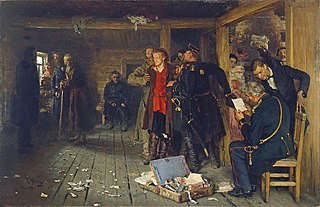 W
WGoing to the People was a populist movement in the Russian Empire.
 W
WMikhail Rafailovich Gots (1866–1906) was a Russian revolutionary, member of 'The People's Will' and one of the founders of the Socialist-Revolutionary Party (PSR). He was the older brother of Avram Gots.
 W
WHesya Mirovna (Meerovna) Helfman 1855, Mazyr — 1 February 1882, Saint Petersburg), was a Russian revolutionary member of Narodnaya Volya, who was implicated in the assassination of Tsar Alexander II.
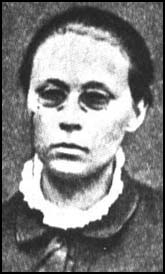 W
WPraskovya Ivanovskaya was a Russian revolutionary, was a member of both the Narodnaya Volya and Socialist-Revolutionary Party.
 W
WStepan Nikolayevich Khalturin was a Russian revolutionary, member of Narodnaya Volya, and responsible for an attempted assassination of Alexander II of Russia.
 W
WNikolai Ivanovich Kibalchich was a Russian revolutionary of Ukrainian-serbian origin who took part in the assassination of Tsar Alexander II as the main explosive expert for Narodnaya Volya, and was also a rocket pioneer. He was a distant cousin of revolutionary Victor Serge.
 W
WVictor Kurnatovsky graduated from the Zurich University and was an engineer by trade.
 W
WAleksandr Aleksandrovich Kvyatkovsky was a Russian revolutionary and member of the Executive Committee of Narodnaya Volya.
 W
WJózef Łukaszewicz was a Polish physicist, geologist and mineralogist, as well as a 19th-century revolutionary. During his life he took part in a failed attempt to assassinate tsar Alexander III of Russia, served a lifetime sentence in Shlisselburg prison, was a professor at numerous universities, headed the Petersburg Institute of Geography and a chair in the Stefan Batory University of Wilno.
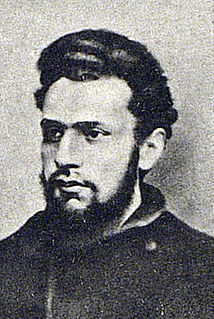 W
WAlexandr Martynov was a leading Menshevik politician before the Russian revolutions of 1917, and for a few years after the revolution a critic of the Soviet government's theory of permanent revolution (1923).
 W
WMikhail Fedorovich Frolenko was a Russian revolutionary, populist, member of the Executive Committee of the People's Will.
 W
WOsip Solomonovich Minor was a Russian revolutionary and member of the Socialist-Revolutionary Party.
 W
WNikolai Alexandrovich Morozov was a Russian revolutionary who spent about 25 years in prison before turning his attention to various fields of science.
 W
WSophia Lvovna Perovskaya was a Russian revolutionary and a member of the nihilist revolutionary organization Narodnaya Volya. She helped orchestrate the successful assassination of Alexander II of Russia, for which she was executed by hanging.
 W
WPervomartovtsy were the Russian revolutionaries, members of Narodnaya Volya, planners and executors of the assassination of Alexander II of Russia and the attempted assassination of Alexander III of Russia.
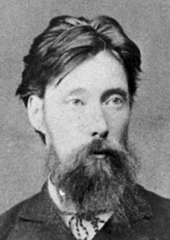 W
WAlexander Vasilievich Pribylev (1857–1936) was a Russian revolutionary, a member of the party "Narodnaya Volya", a member of the Party of Socialist Revolutionaries, a bacteriologist, a public figure.
 W
WNikolai Ivanovich Rysakov was a Russian revolutionary and a member of Narodnaya Volya. He personally took part in the assassination of Tsar Alexander II of Russia. He threw a bomb that disabled the Tsar's carriage. A second bomb by an accomplice, Ignacy Hryniewiecki, killed the Tsar.
 W
WNikolai Alekseyevich Sablin, was the son of a petty landowner, was born in 1849 or 1850. While at Moscow University he became involved in revolutionary politics as a member of the Narodnaya Volya or People's Will.
 W
WLev (Chaim-Leib) Yakovlevich Sternberg was a Russian and Soviet ethnographer of Jewish origin who from 1889 to 1897 studied the Nivkhs (Gilyaks), Oroks, and Ainu on Sakhalin and in Siberia for the American Museum of Natural History, in New York City.
 W
WConstantin G. Stere or Constantin Sterea was a Romanian writer, jurist, politician, ideologue of the Poporanist trend, and, in March 1906, co-founder of the literary magazine Viața Românească. One of the central figures of the Bessarabian intelligentsia at the time, Stere was a key actor during the Union of Bessarabia with Romania in 1918, and is associated with its legacy.
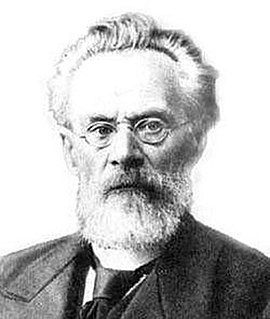 W
WLev Alexandrovich Tikhomirov, originally a Russian revolutionary and one of the members of the Executive Committee of the Narodnaya Volya, following his disenchantment with violent revolution became one of the leading conservative thinkers in Russia. He authored several books on monarchism, Orthodoxy, and Russian political philosophy.
 W
WAleksandr Ilyich Ulyanov was a Russian revolutionary and political activist. He was the elder brother of Vladimir Lenin, the founder of the Soviet Union.
 W
WFeliks Vadimovich Volkhovsky was a Russian revolutionary, journalist and writer. Volkhovsky became involved in radical student politics in St Petersburg in the 1860s. In 1867, he co-founded the 'One Rouble Society' with German Lopatin; it was dedicated to propaganda and educational work among the masses. After several arrests, Volkhovsky moved to Odessa in 1873, where he organised a circle affiliated with the Circle of Tchaikovsky. One of the members of Volkhovsky's Odessa group was Andrei Zhelyabov, later one of the principal organisers of the assassination of Tsar Alexander II.
 W
WPyotr Filippovich Yakubovich was a Russian revolutionary, poet and member of Narodnaya Volya during the 1880s. He graduated from the Faculty of History and Philology of Petersburg University (1882). After graduating, he entered the Petersburg Department of Narodnaya Volya. He was an organizer of the "Young People's Will Party" as well as its leader and ideologist.
 W
WAndrei Ivanovich Zhelyabov was a Russian revolutionary and member of the Executive Committee of Narodnaya Volya.
 W
WAaron Isaakovich Zundelevich was a Jewish Russian revolutionary narodnik.